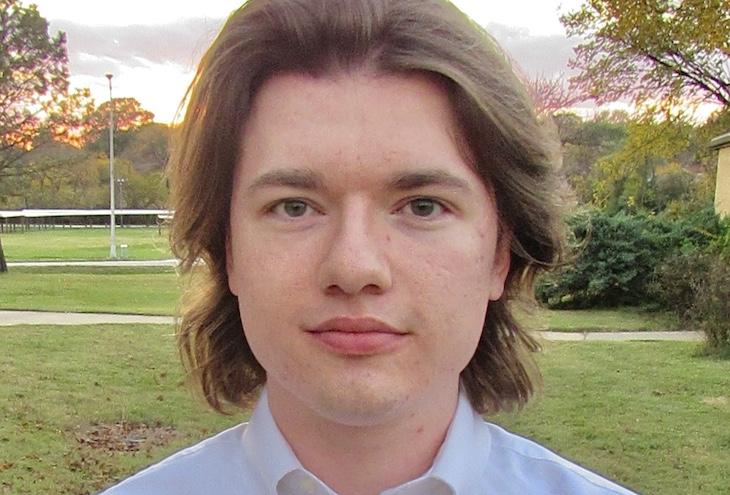Both my parents studied computer science, and from the moment I started school they encouraged me to pursue higher education. I grew up near Spokane, Wash., where my college journey began at Spokane Falls Community College. From there, I went to the University of Washington, then to Haskell Indian Nations University, where I am currently a senior set to graduate this spring. My major is environmental science, which is a good fit for me since I’ve always wanted to study something within biology. Environmental science provides a good overview while being interesting and impactful.
As a tribal university, Haskell is very supportive of Native students. While they have limited STEM majors, they offer a program allowing students to take classes at the University of Kansas (KU), which let me pursue specialized scientific disciplines. Through these classes, I realized I want to study entomology. I’ve always been interested in bugs but didn’t see it as the basis for a career until meeting my mentors and the entomology community at KU. I feel lucky to have a supportive group of researchers to help guide me. I’ve been participating in workshops at Haskell and attending seminars and outdoor activities at KU, including controlled burn workshops and light trappings.
Last summer I participated in an international Research Experiences for Undergraduates (REU) in Lesvos, Greece. This was an amazing experience where I studied heat tolerance in bees and the behavior of honeybees and ants. This REU was great for first-time international travelers like me. While experiencing phenomenal food and community-centric culture, I had incredible experiences visiting the Parthenon, the petrified forests of Lesvos, and Turkey. The REU gave me a once-in-a-lifetime opportunity to explore Greece while furthering my education and contributing to the scientific community. I am looking forward to presenting my research at the Society for Integrative and Comparative Biology conference this January.
Currently, I am a K-INBRE (Kansas Idea Network of Biomedical Research Excellence) scholar analyzing genetic relationships in an aquatic beetle found in South America. Through this research, I’ve gotten familiar with analyzing specimen traits to describe new species and creating family trees from genetic data. My K-INBRE research and REU solidified my decision to pursue a career in entomological research.
As a student and researcher, I try to embody persistence. I have struggled with anxiety and depression throughout my academic career, and I’ve learned it’s OK to feel intimidated and overwhelmed. Everyone feels that way at some point, and it’s always OK to reach out for help. It’s also normal to not know exactly what you are going to do later in life. I only recently focused in on what I want to study.
Having the ability to continue my studies, even without an end goal in mind, allowed me to take advantage of opportunities that came up later. These experiences have guided me toward pursuing graduate school. Another quality that helped me was the courage to put myself out there. Traveling for field research was scary but ended up being one of the most rewarding experiences of my life. Courage allowed me to grasp opportunities instead of letting them pass by.
I also understand the importance of having role models. While I have stayed connected to my tribe through regional events, growing up so far away from our tribal lands in Oklahoma made me feel like a bit of an imposter. However, in 2019 I participated in my tribe’s leadership program. By meeting tribal leaders, forming friendships with other members, and delving into the culture, I connected with my tribe and felt truly at home. As an AISES member and Sloan Fellowship scholar, I’m glad to be extending the mission beyond institutional settings to support Indigenous communities.
In the future, I want to encourage others to pursue scientific career paths. Research is helping me develop skills tailored to the needs of the tribal community. Much of my tribe’s Indigenous knowledge was lost during colonization. I hope to follow in the footsteps of others in my tribe who have used their research to fill knowledge gaps and heal parts of our cultural identity.
— As told to Kathleen Carty-Fisher












